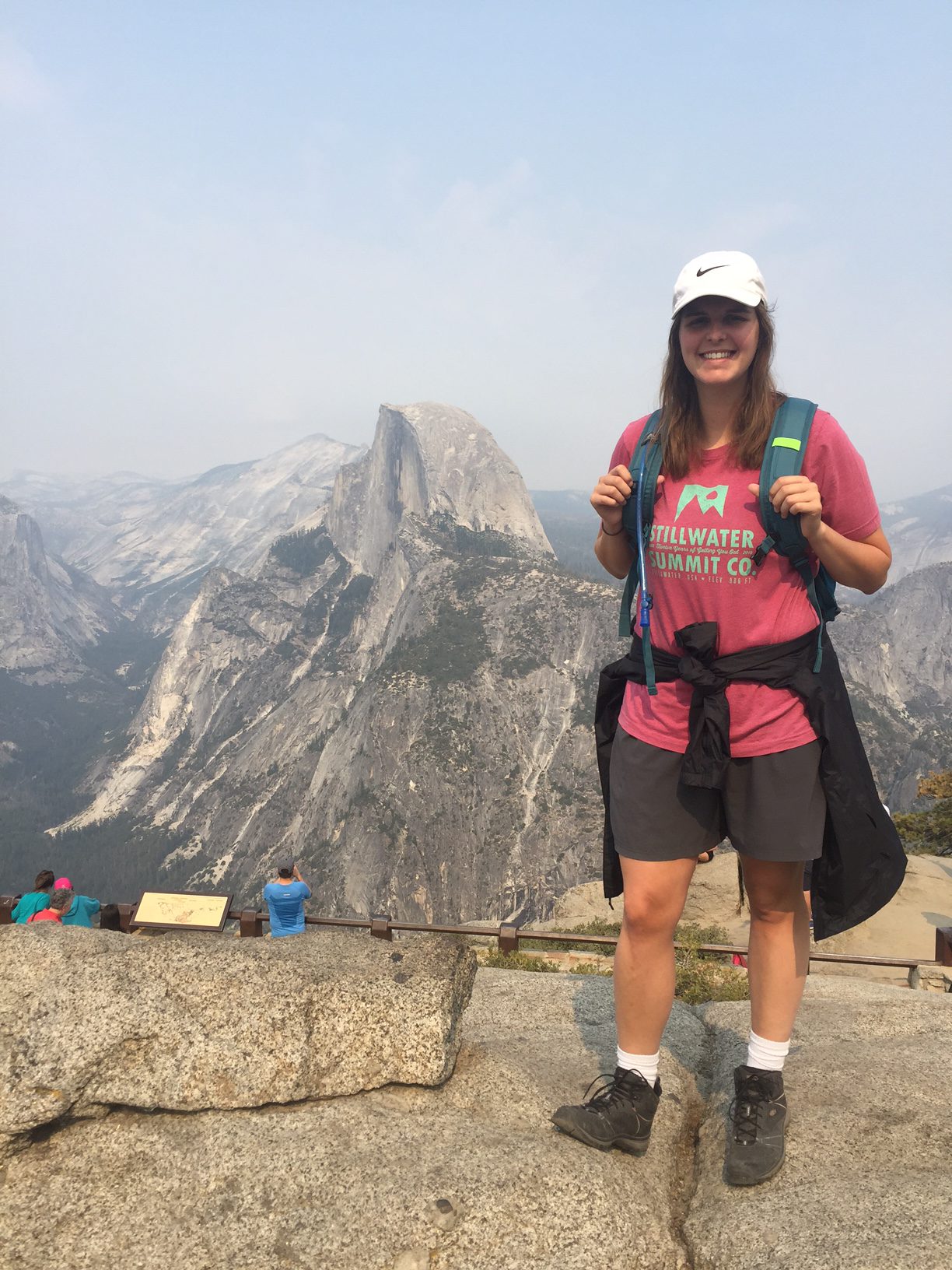
Hi, my name is Rachel Ware; landscape architecture graduate student & graduate research assistant at the OU Institute for Quality Communities (IQC).
Landscape architect (n): “Landscape architects analyze, plan, design, manage, and nurture the built and natural environments. Landscape architects have a significant impact on communities and quality of life. They design parks, campuses, streetscapes, trails, plazas, and other projects that help define a community.” (ASLA.org)
This definition sets the stage for why I chose to study landscape architecture: to positively impact communities and improve quality of life.
My two years working for IQC have been an integral part of my experience at the OU College of Architecture. I have developed skills beyond the classroom and applied them to real challenges facing Oklahoma communities.
Let me break it down for you!
1. We get to explore really cool towns in Oklahoma.
2. We get to talk to people who are passionate about improving their communities.
3. We get to collaborate with OU students and staff to apply our knowledge and skills to a real community.
4. We get to see our work and ideas come to fruition.
1. We get to explore really cool towns in Oklahoma.
And when I say explore, I really mean EXPLORE. While using Google Maps and driving the streets helps with understanding some important physical characteristics, we don’t stop there. We do our best to immerse ourselves into the experience of the community by eating at local restaurants, stopping by local shops, and taking tours of the town.
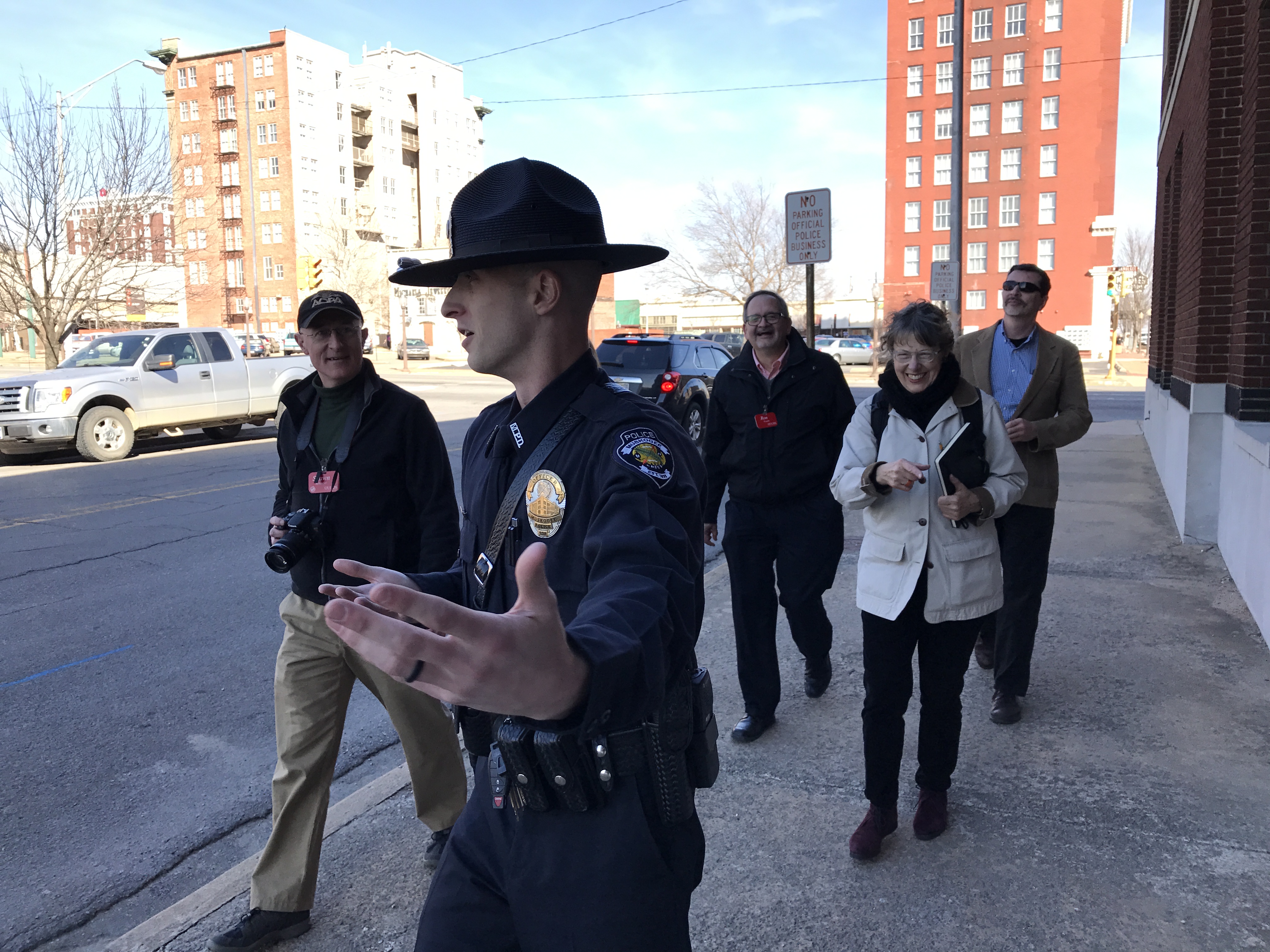
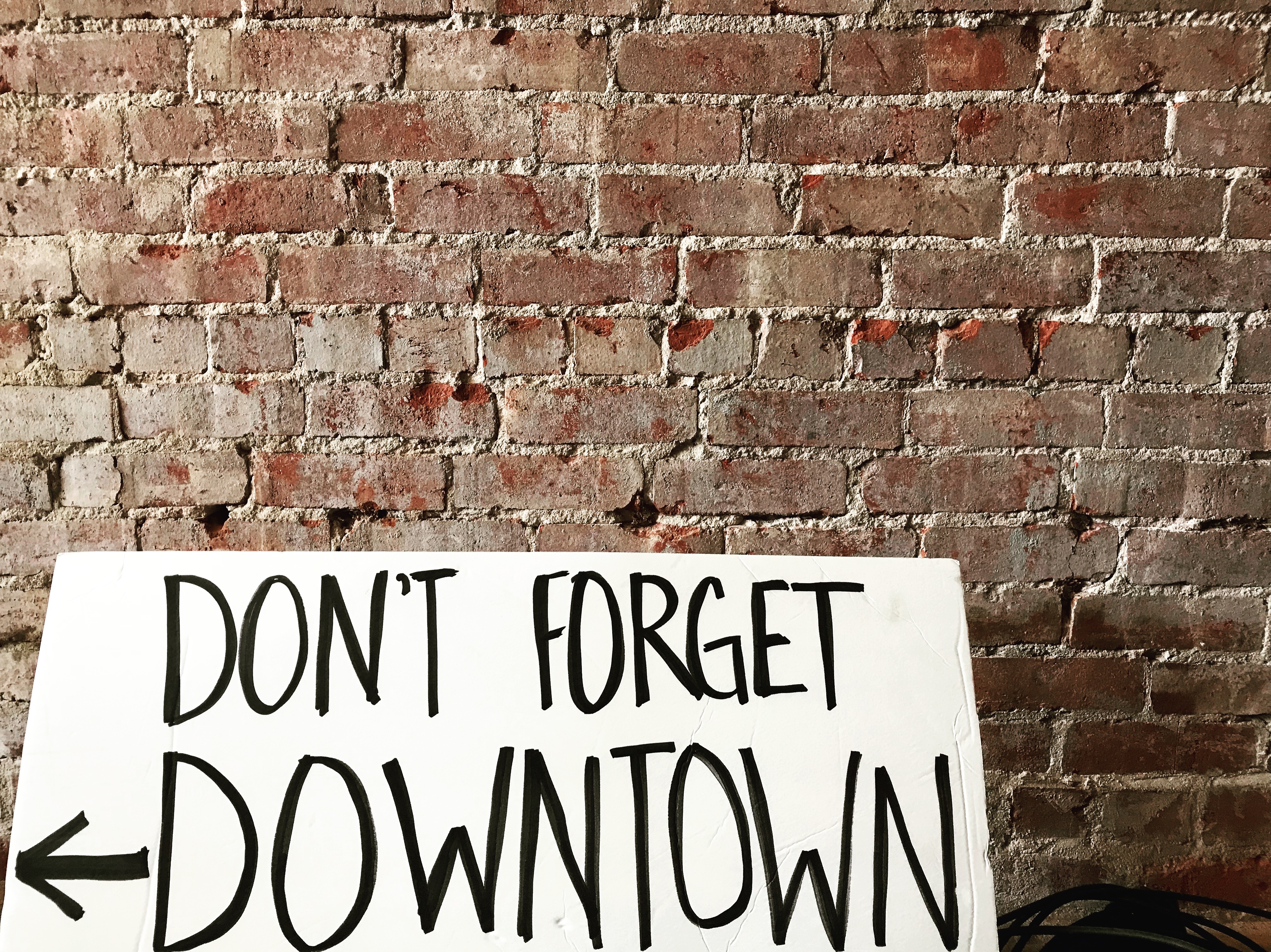
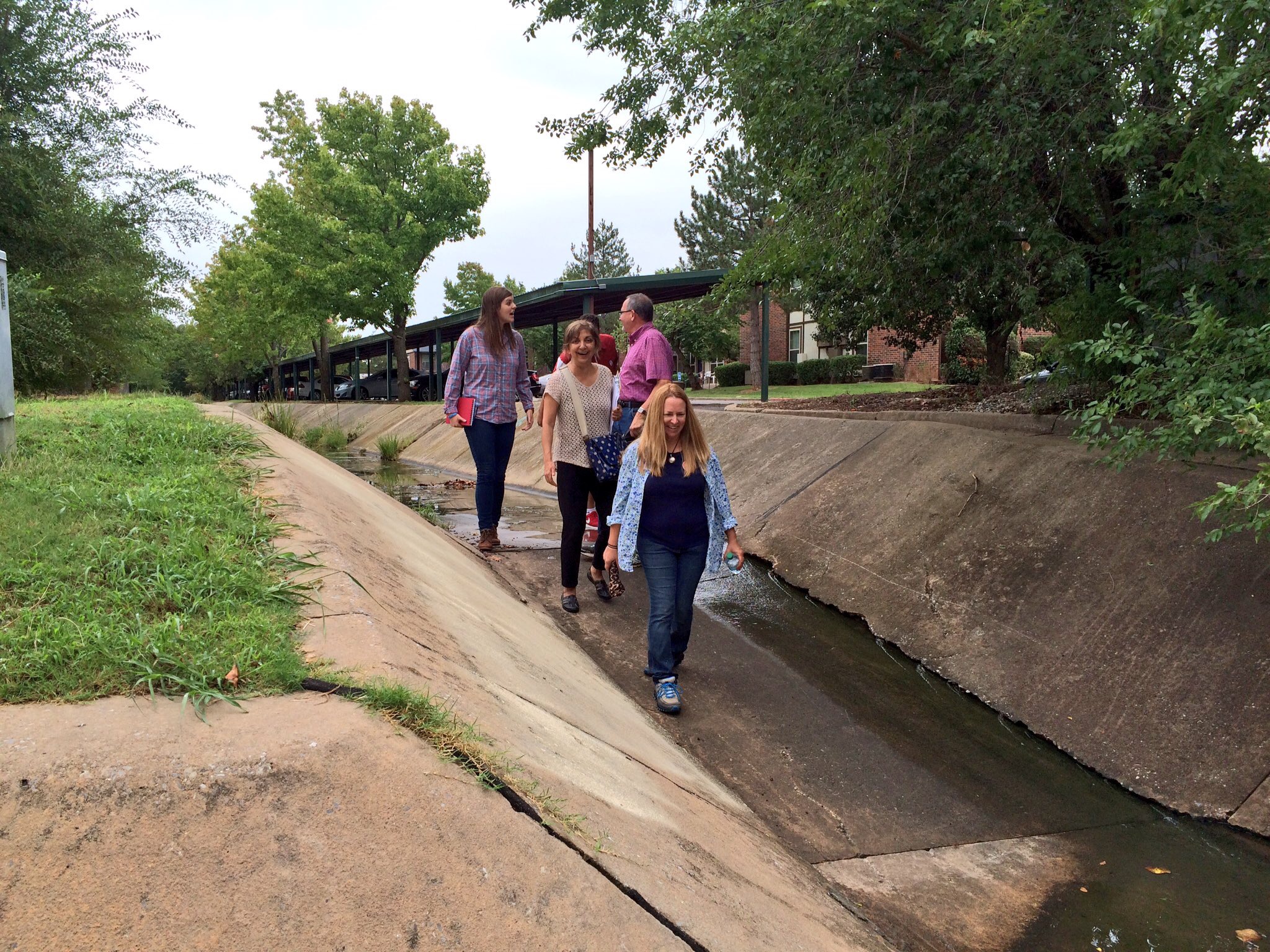
Tours are led by knowledgeable locals.
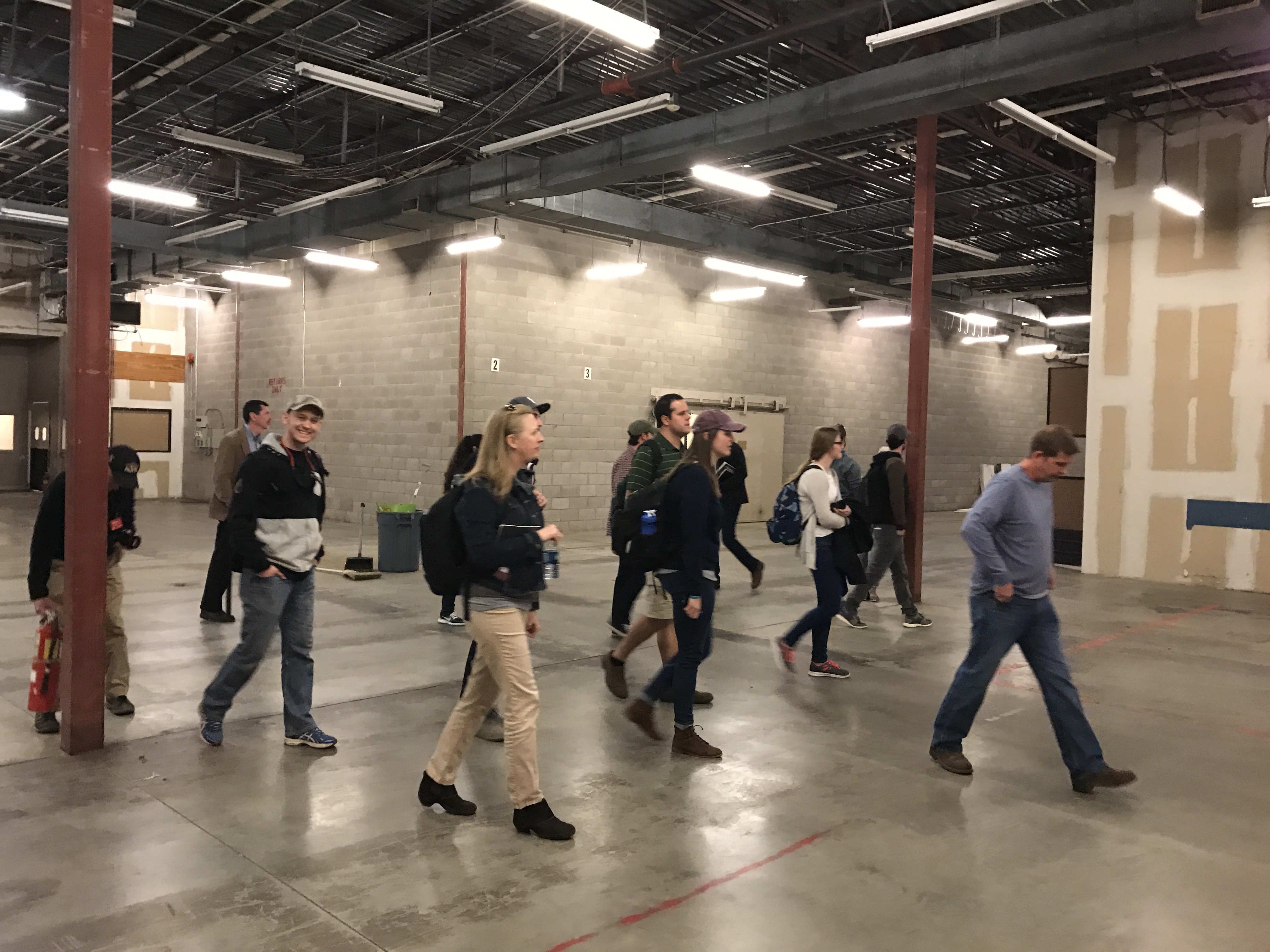
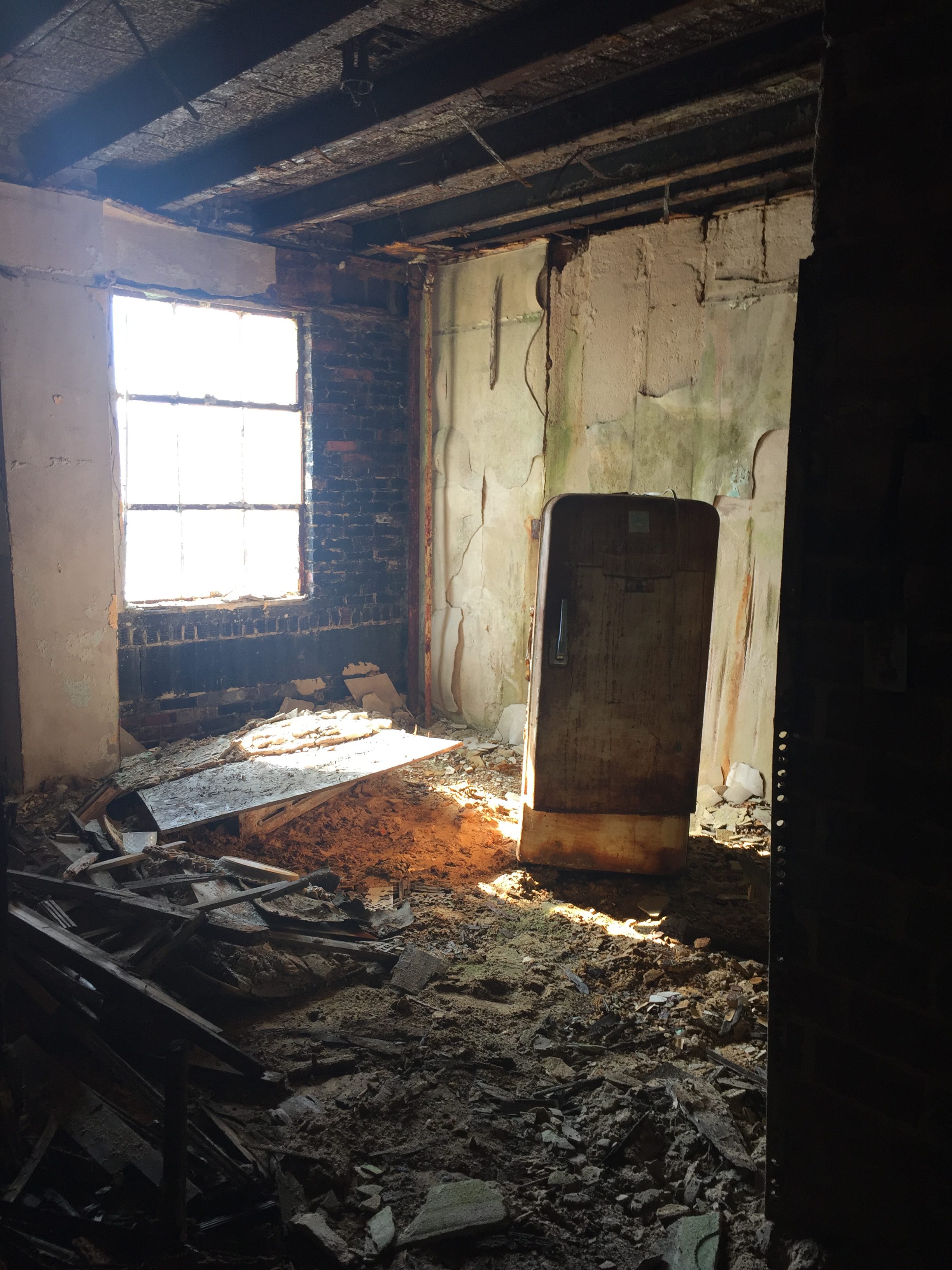
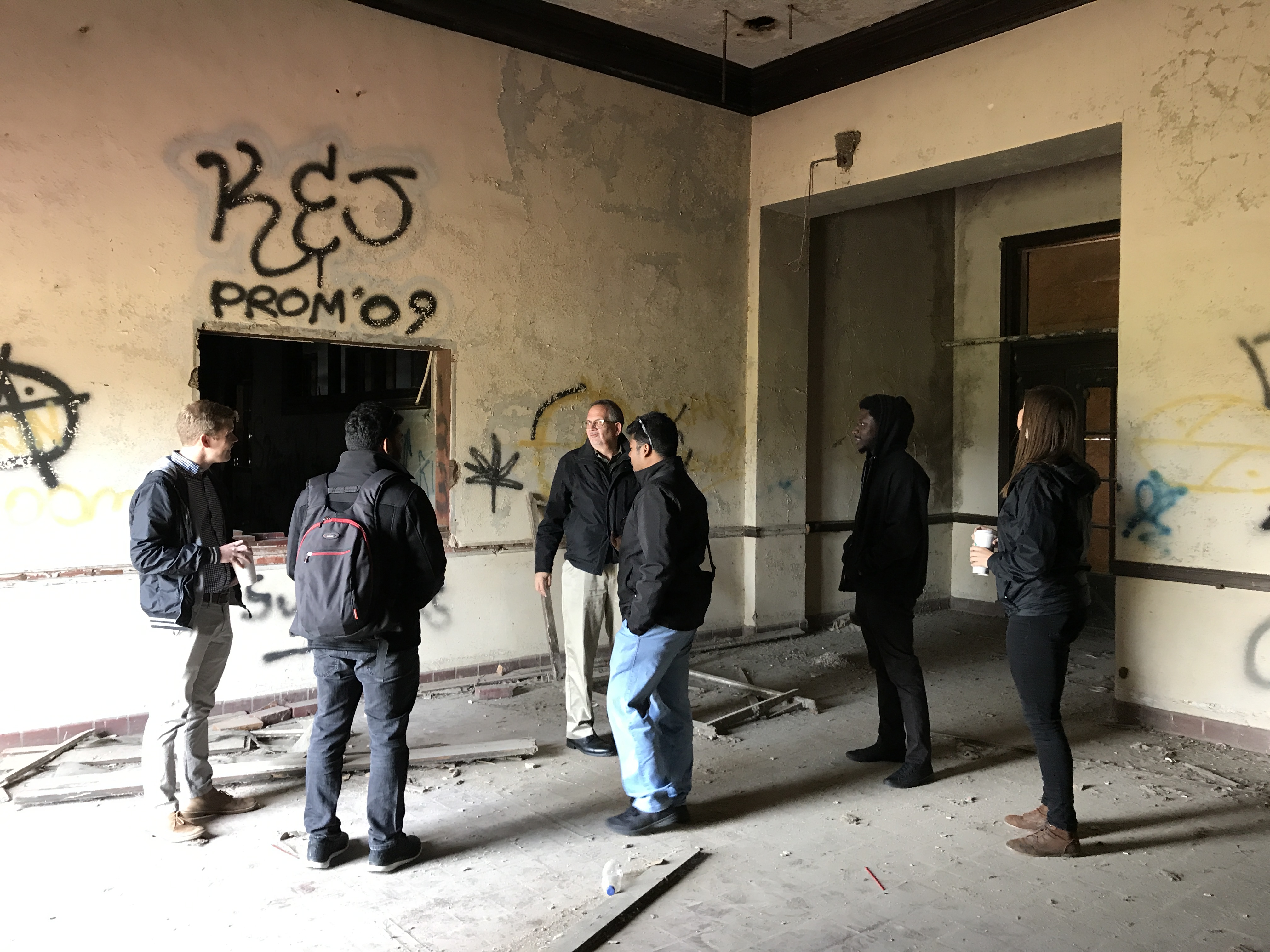
Our tours sometimes take us into abandoned buildings: hotels, malls, train depots, storefronts.

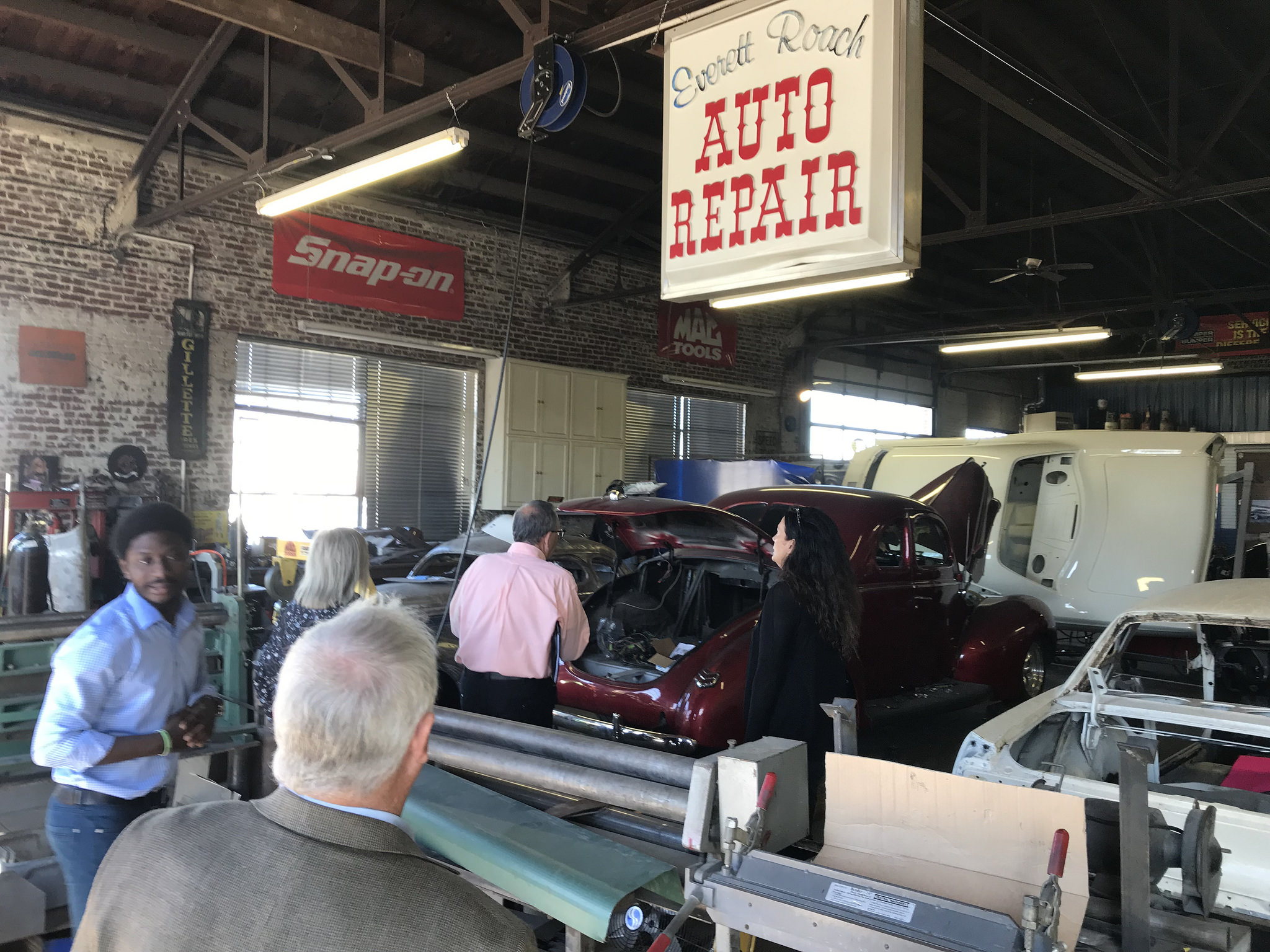
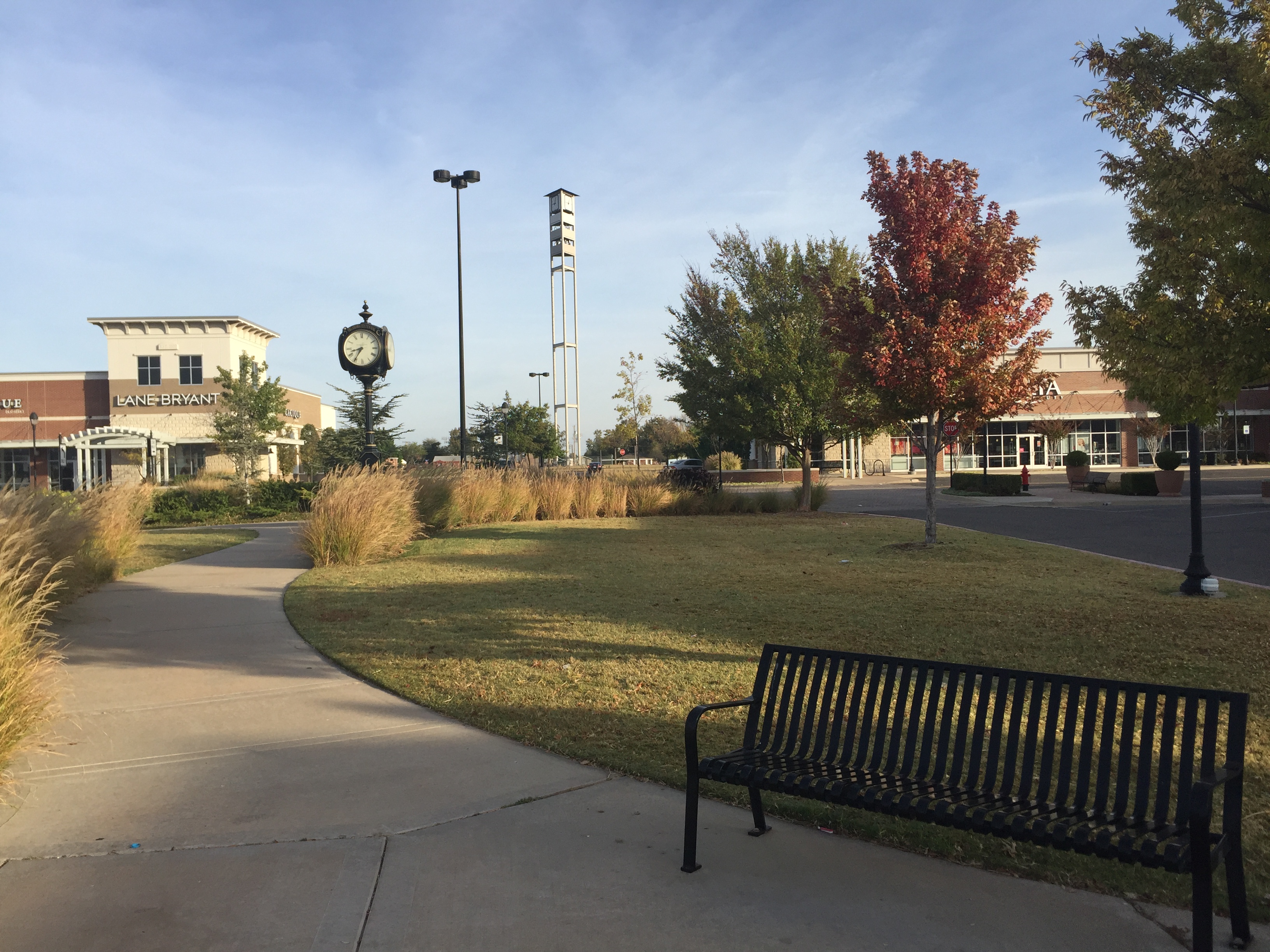
But the tours ALWAYS expose us to the characteristics that make each community unique.
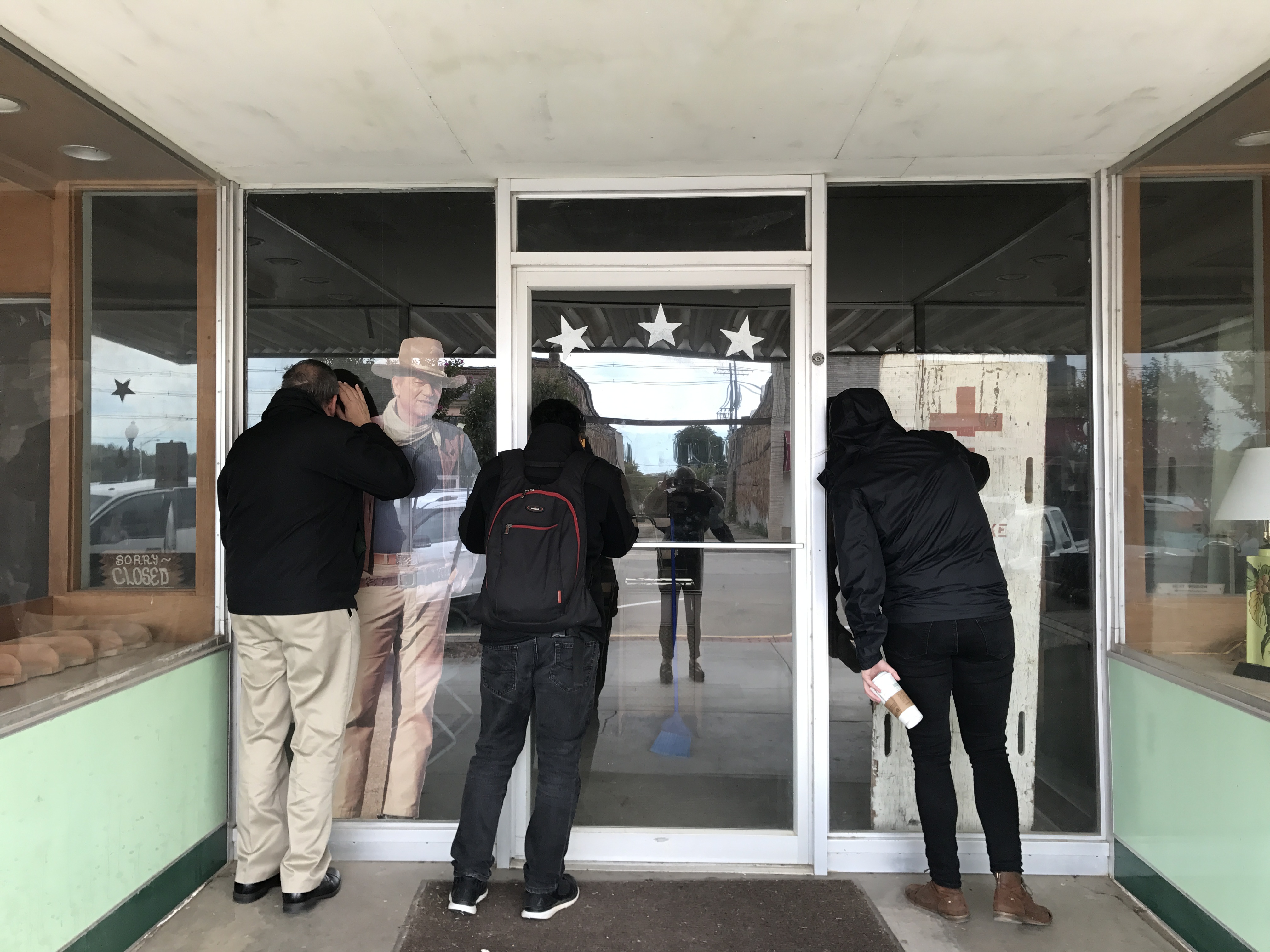
Skills Developed: Observation & Analysis
What’s really happening when we’re walking around jotting down notes, taking pictures, and chatting with your local barista, is a series of observations. We’re learning to observe both physical and social elements of a place. For example, while we’re taking inventory of seemingly abandoned storefronts, we may also discover the town’s unique niche of makers and creators. Or while we’re talking to a local business owner, we may uncover a series of events planned for the community.
We’re also learning how to analyze our findings and graphically communicate those findings to the community stakeholders.
2. We get to talk to people who are passionate about improving their communities.
Last year, we had over 1000 people attend the 2017 Placemaking Conference. This conference brings in speakers from across the world who are passionate about improving communities with innovative ideas. People from all over attend this conference to hear new ideas and discuss the obstacles their communities are facing. We also get to work with several Oklahoma communities on an individual basis each year. They expose us to their town’s best attributes and biggest challenges while we work with them to brainstorm solutions.
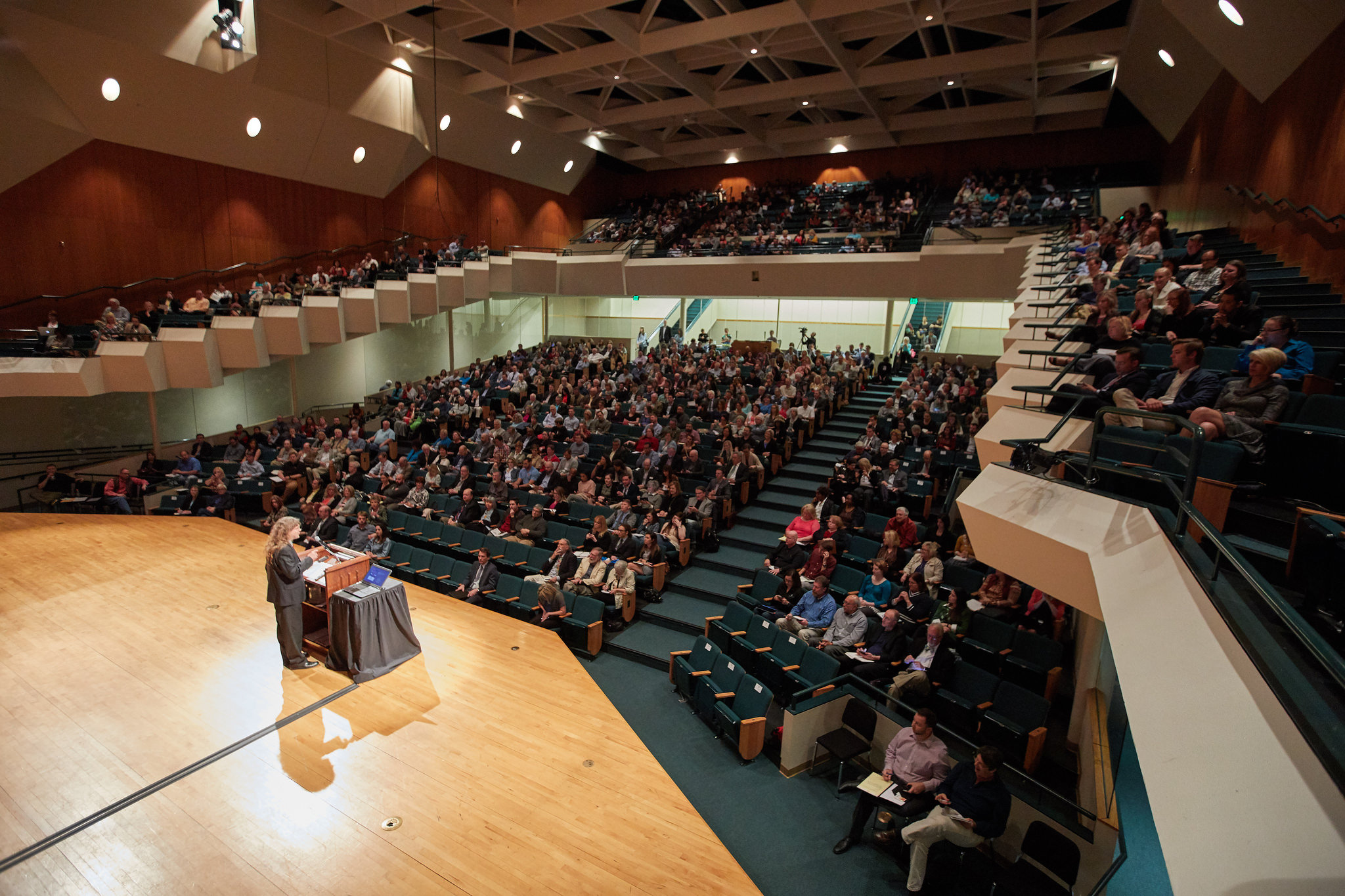
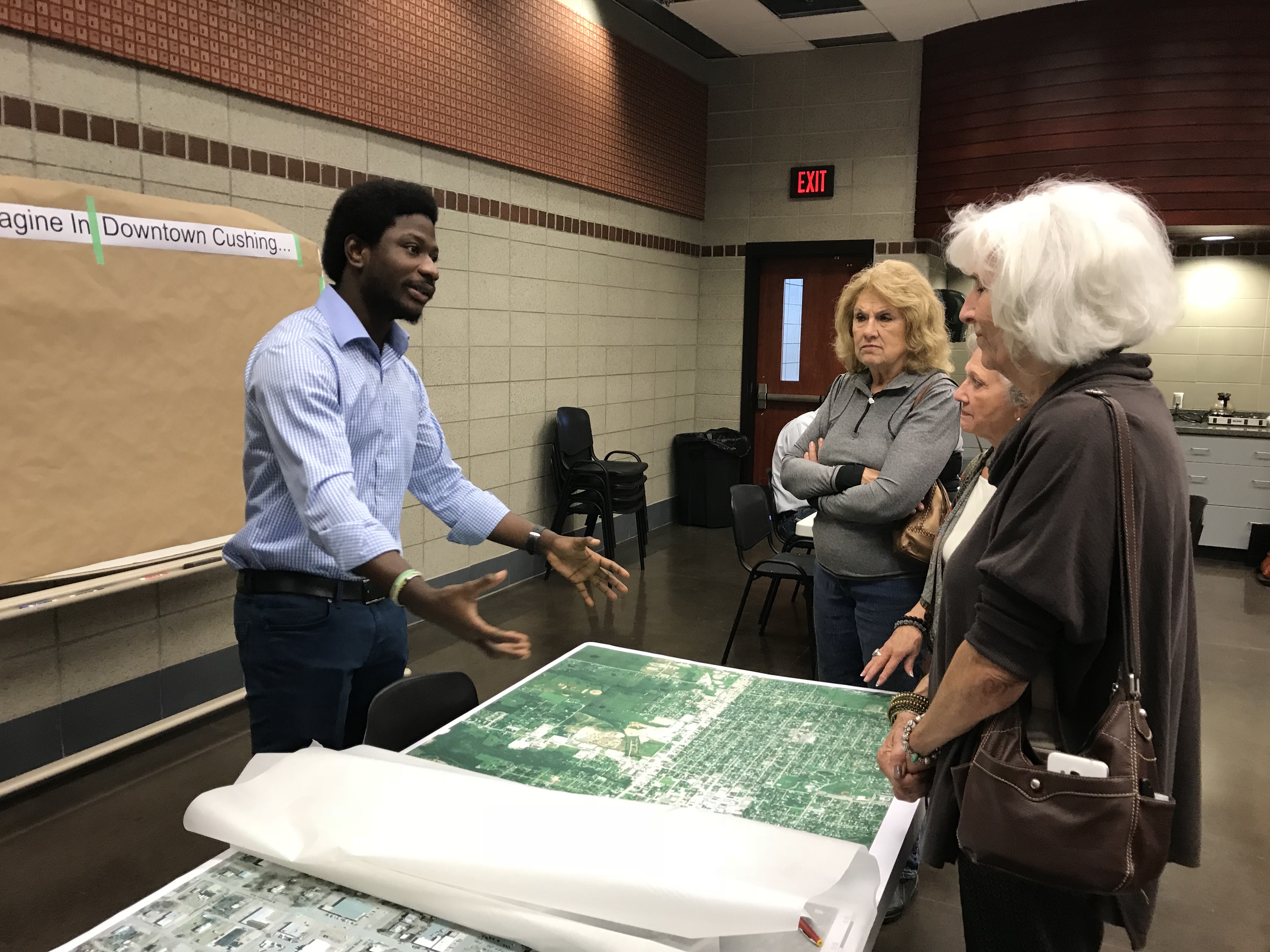
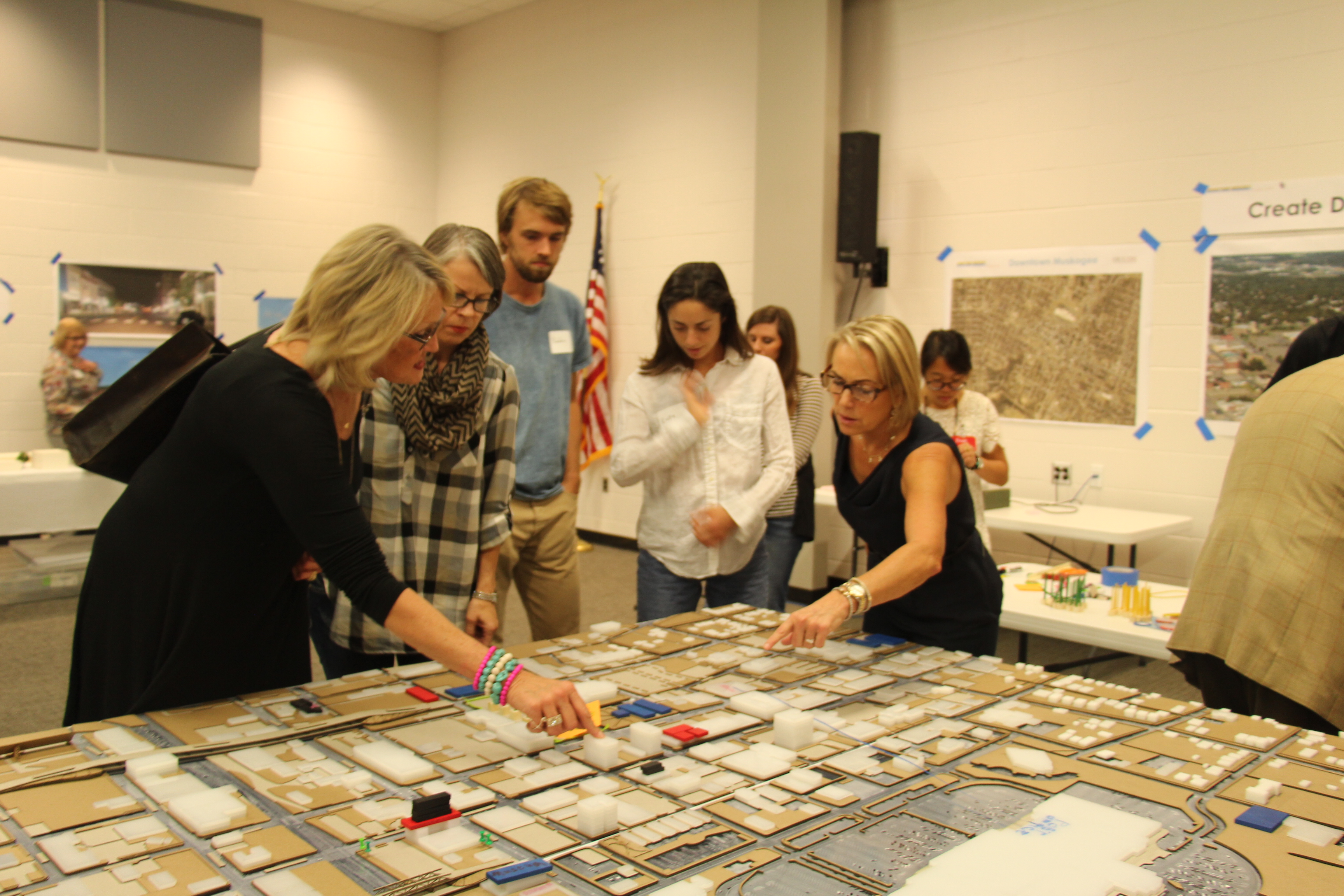
We print maps, build models of towns, get out the markers, and do various activities to hear from community members about what’s important to them.
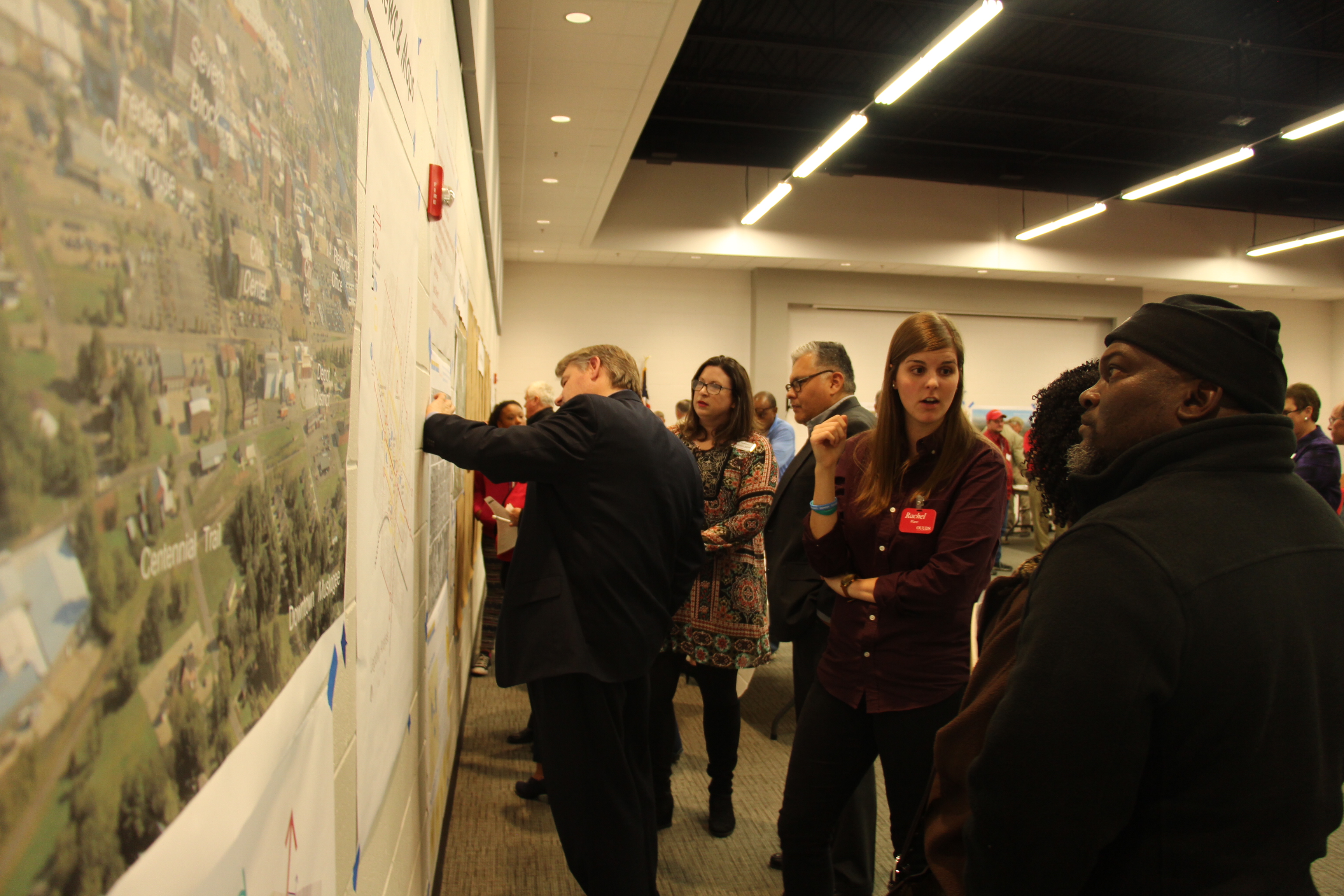
Skills Developed: Communication
As we work with community members, we practice our communication skills: both verbal and graphic. In school, we’re learning how to think like designers. But when we work with community members, we’re learning to listen to their interests, gain an understanding of the context, and translate both into design recommendations.
3. We get to collaborate with OU students and staff to apply our knowledge and skills to a real community.
In the two years I’ve worked with IQC, I’ve worked alongside students from diverse cultures, educational backgrounds, and experiences. This has broadened my perspective and given me the opportunity to learn from my peers. We collaborate on projects and learn how to combine our individual ideas into concepts that become design recommendations.
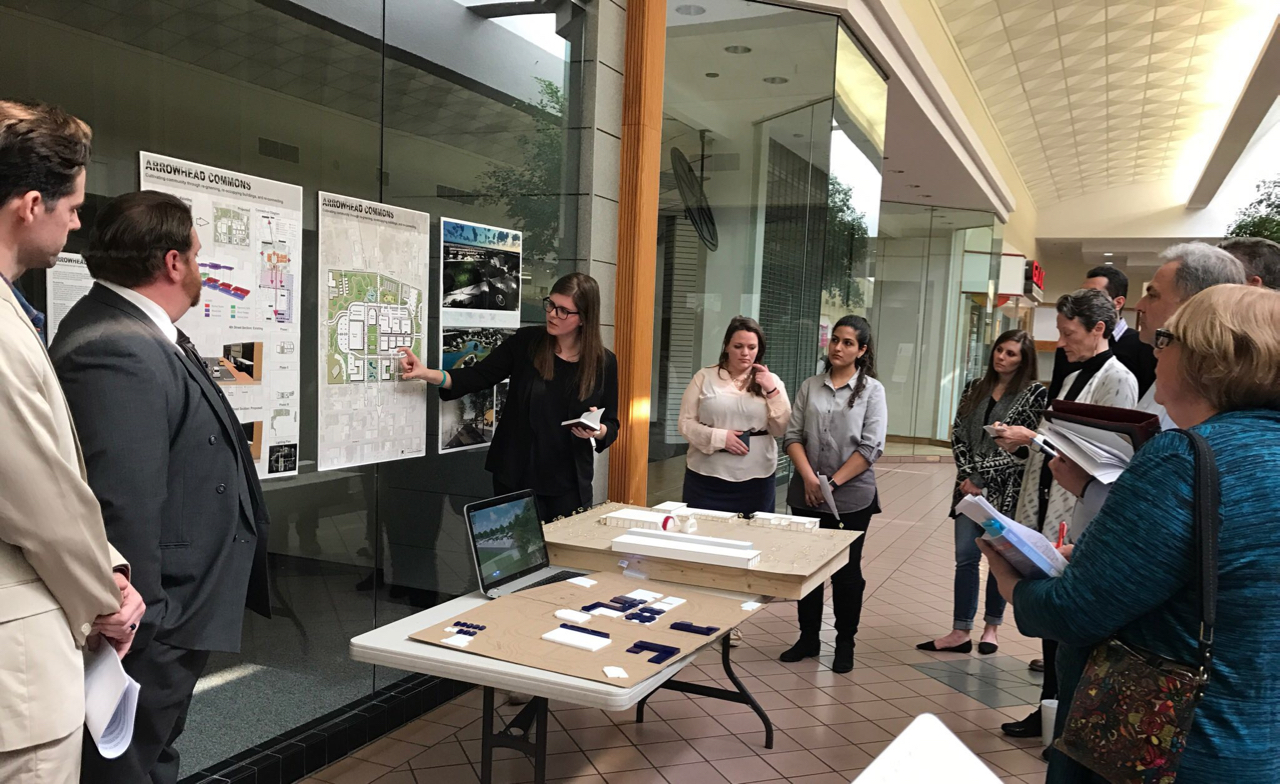
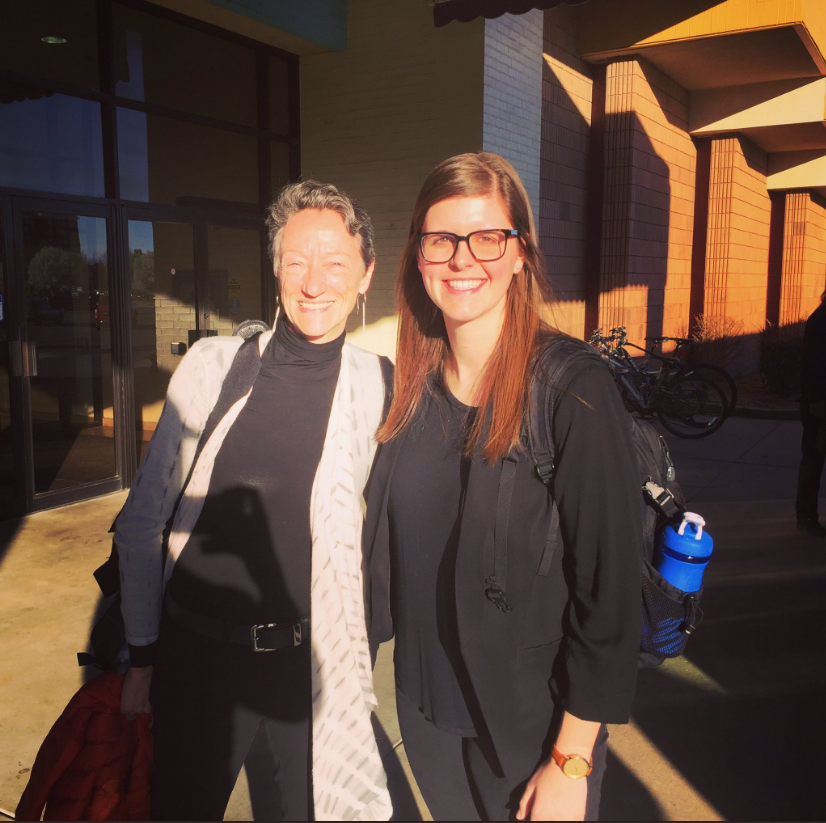
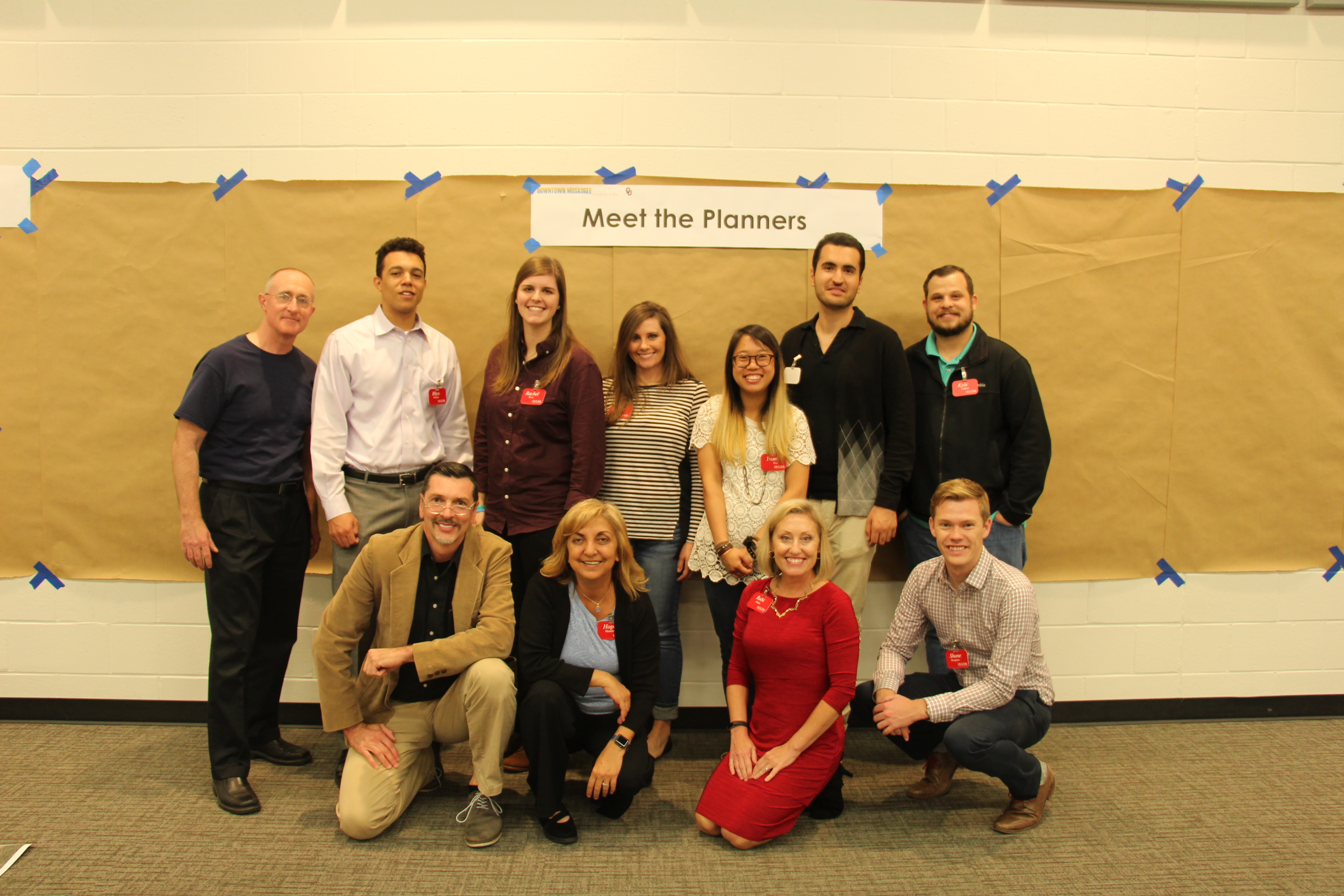
We work with students in architecture, city planning, urban design, and professionals across disciplines (like Ellen Dunham-Jones!).
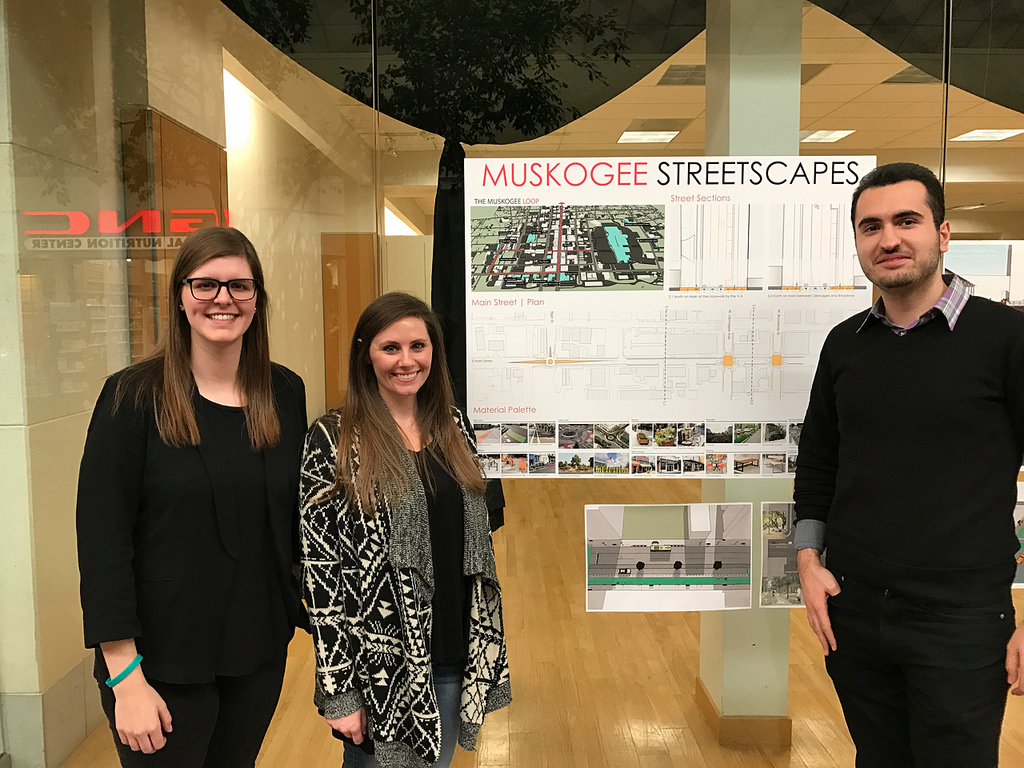
Skills Developed: Collaboration
Luckily, we have a fun, collaborative culture at IQC, which makes collaboration a blast. But sometimes collaborating is difficult, so we get to develop useful collaboration skills in a welcoming environment. Through competitions, group projects, and interdisciplinary collaboration, we’re expanding our ability to understand different viewpoints.
4. We get to see our work and ideas come to fruition.
After working with communities, we develop a final report which includes our data collection, analysis, community feedback, and key recommendations. These reports are published on the IQC website, printed, and sometimes they’re even formally adopted by the community we worked with. It’s a rewarding experience to present our findings to clients and hear their excitement to implement some of our ideas.
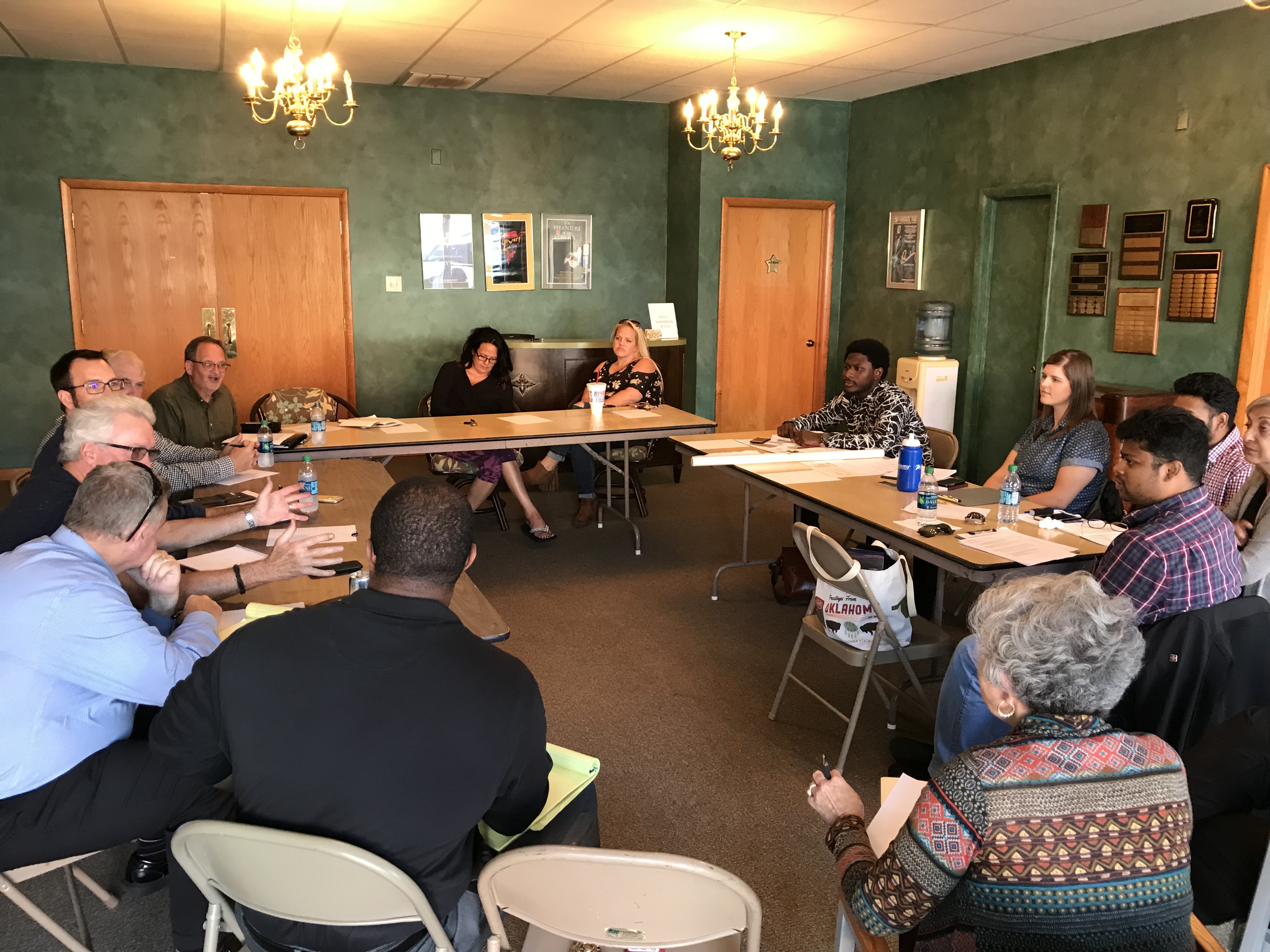
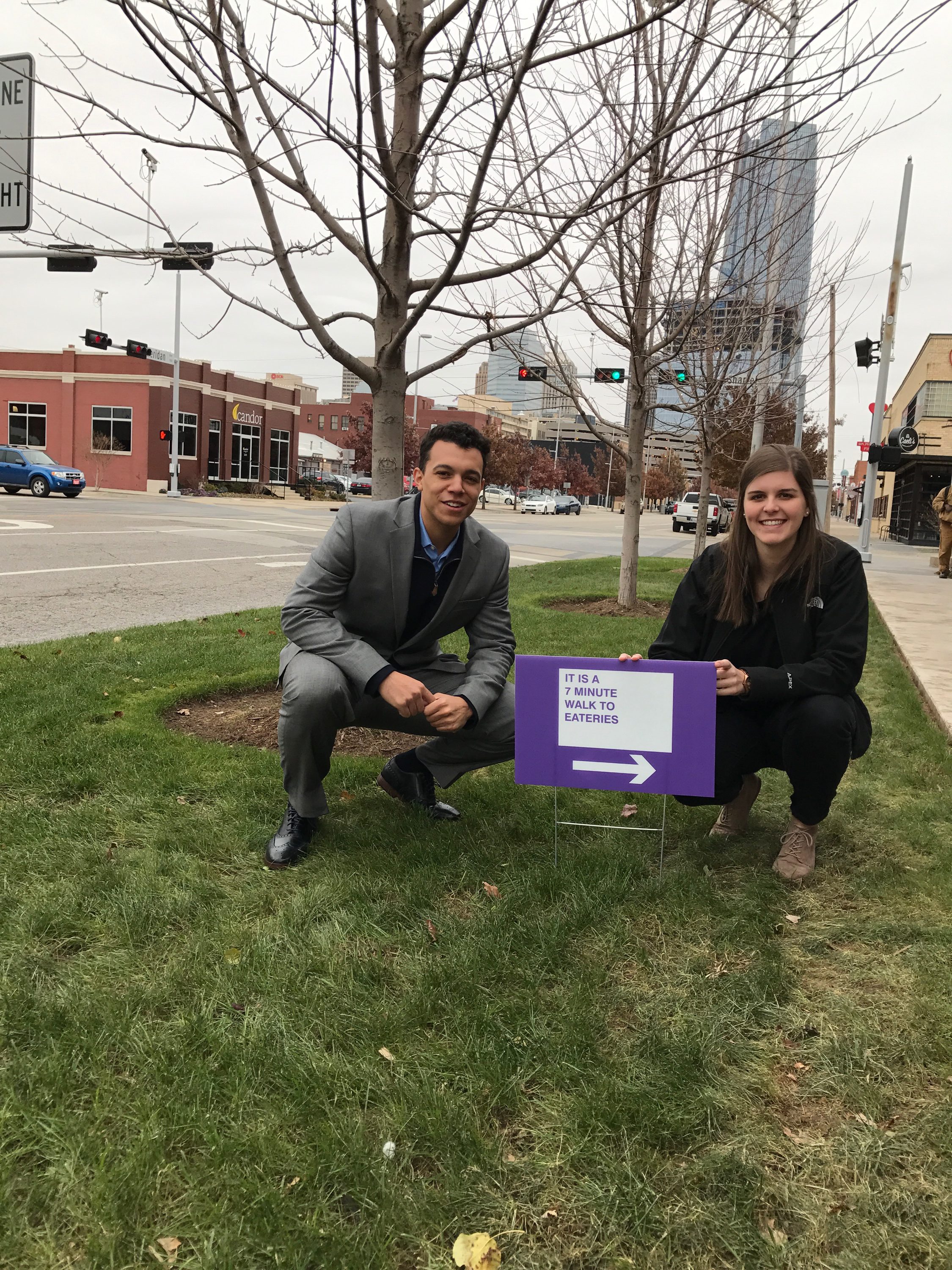
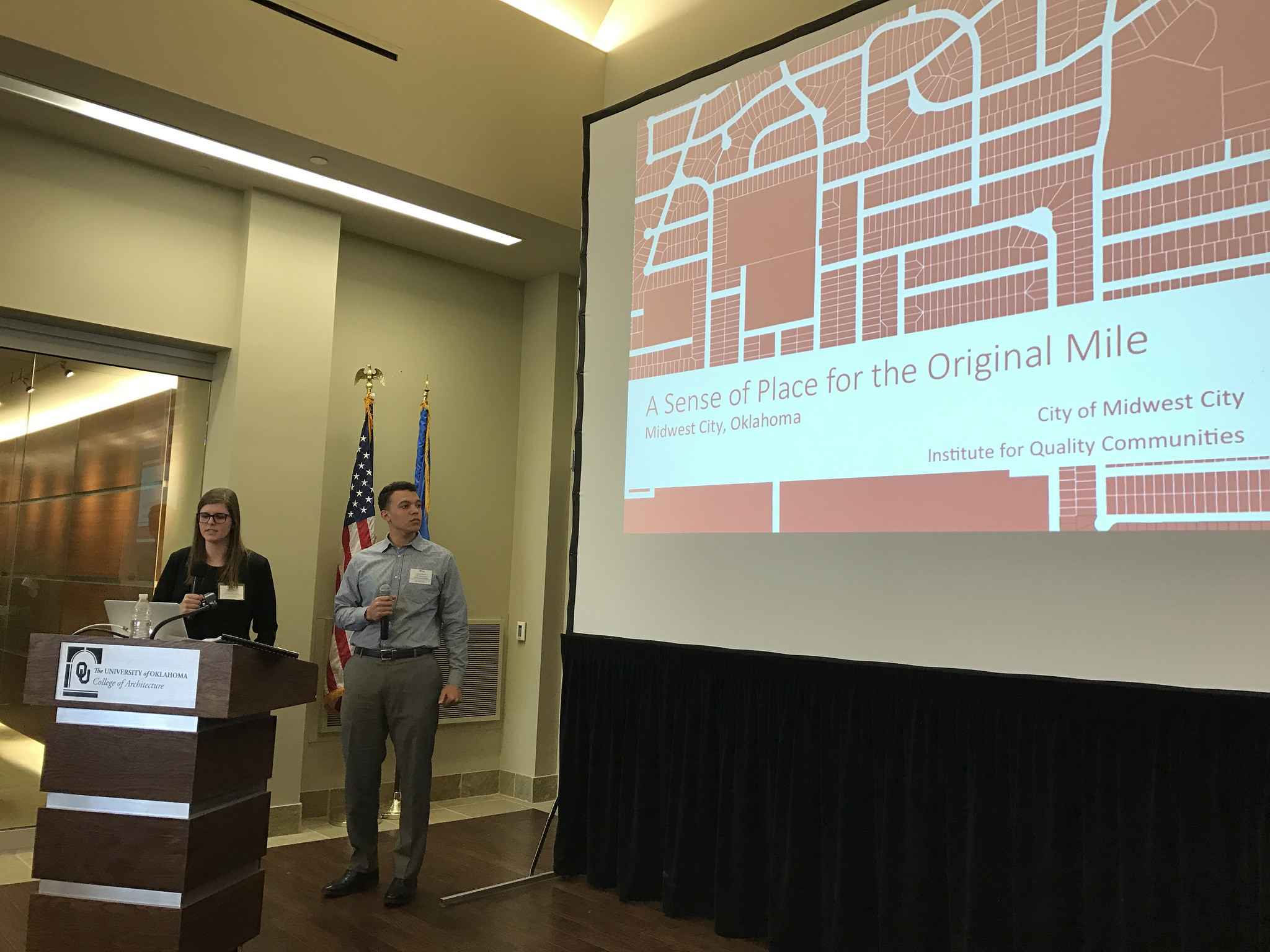
Working with IQC has been among the most rewarding experiences I’ve had in my graduate studies. I’ve developed new skills, improved upon other skills, and made great relationships with professionals in the design field. This experience has reinforced the confidence I have in pursuing a career in landscape architecture to positively impact communities and improve quality of life.
